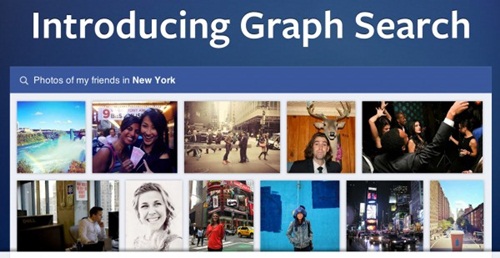When people feel bad about their rankings suddenly changing due to erratic algorithmic changes at Google it is understandable because businesses incur losses. Something that might be inane and simple organizational restructuring for the search giant might be a matter of life and death for a particular business. I have personally experienced total disappearance of my website from the search engine listings around three years ago (April-end 2011 to be precise) and I can totally relate to what must people feel when their links suddenly disappear from the first page or the second page for no fault of theirs.
First, Google never advises people to base their businesses solely on the search engine. The search engine is a good way of getting qualified traffic but it is a search engine after all run by a private company that is only going to worry about its own bottom line. People at Google will never make changes that bring them losses. In fact search engineers and information architects at Google must be working round-the-clock trying to figure out how to maximize the company’s profits. If in the pursuit of this maximization someone’s business is ruined, well, too bad.
But you know what? Google is not a natural phenomenon. It’s not that your business was hit by an earthquake or a flash flood or a lightning and you couldn’t do anything about it. Yes, if it is a major source of traffic you might be hit initially but if you have already been trying to build other resources for qualified traffic then there is no reason to worry. The problem is, sometimes we focus just on a single thing, like put all the eggs in a single basket and if you’re doing that, then even if your business does not depend on Internet traffic, it is operating on shaky ground because you never know when circumstances change.
Take for instance guest blogging. In a recent blog post I explained how to pitch for a guest blogging assignment and I also mentioned how guest blogging is being frowned upon by the search experts at Google for obvious reasons. There is a thriving community called MyBlogGuest for guest bloggers and suddenly Google has decided to penalize not just the website but also all the participants. And this is exactly the sort of response from Ann Smarty, the founder of MyBlogGuest, that should instil confidence among those who don’t want to allow Google to arm twist them into following its every single guideline. The people who are complaining are mostly the ones who had completely left it up to Google to decide how much traffic they should get.
Why is Google penalizing every method of getting back links from other websites? Guest blogging after all is a perfectly legitimate way of getting qualified links to your website or blog. You write for another blog and as a gesture of appreciation, they include a small bio of yours that contains your link; what’s wrong in that? There is nothing wrong in that. You need to remember that Google’s revenue comes from AdWords – it’s a PPC (pay per click) program. If you’re not good at improving your search engine rankings and if you have money to spend on marketing, this is a good way of getting immediate traffic. So naturally, if you don’t have other sources of traffic, you need to depend on Google, and if Google doesn’t allow you to naturally get those links from other websites, the only option left for you is to invest in its AdWords program. Obviously it is going to penalize those businesses that try to get traffic from other links.
Attaching the search engine rankings to the way you get links is just a ruse. Google cannot directly tell you that don’t get links from other websites because the only way to get links is through AdWords. It does that through downgrading your natural search engine rankings, something every business aspires for. So either improve your natural search engine rankings by strictly following Google’s recommendations and guidelines, or invest in the AdWords program if the only thing that matters to you is traffic from Google.
What can be other options? Of course I don’t advise you to go against Google’s guidelines because you can generate massive traffic once you have cracked the ranking problem and gotten your website to the first page or even the second page on Google. This is something that works for me:
- When it comes to creating content, make your own website or blog the priority. Create as much high-quality content for your own website or blog as possible. The more high-quality content you have, the better are your prospects at improving your search engine rankings naturally.
- When you get links from other websites (and you don’t want those links to adversely affect your Google search engine rankings) request the owners of that website to use the rel=”nofollow” tag (this tells Google that you are not using the link to improve your search engine rankings). Google does not penalize you for incoming links if these links have this tag. It also doesn’t penalize your ranking if these links are coming from well-reputed websites like New York Times, Washington Post or the Huffington Post whether the use the “nofollow” tag or not.
- Focus on networking, equally. As a small business word of mouth matters. Getting random traffic from search engines may give you a psychological boost, but it isn’t necessary that it will translate into good business. On the other hand if you establish personal contacts with different people it will fetch you more business. Establish a good presence over LinkedIn, Twitter and if possible, also Facebook. In the past year 20% of my business has come from LinkedIn and Facebook (strangely, there have been queries from Twitter, but so far, no project).
- Spend some money on marketing. A great number of things on the Internet are available for free, and this has given rise to a negative mentality that you can do well without spending much money. Invest money getting a good website and hiring a good content writer – regarding hiring a good content writer, I’m not just saying this because I’m a professional content writer, the way you express yourself on your website really makes a big difference. Even PPC programs like AdWords can give you the much-needed initial push. I’m not saying start spending money senselessly, I’m just saying get out of that mentality that on the Internet you don’t need to spend money and everything can be achieved pretty much free of cost. It’s an illusion. Even people promoting open source software applications make money by providing support for those applications.
- Develop your own mailing list. Email still rules the roost when it comes to promoting your services although spammers throughout the world have totally tarnished its image. But it really works. These days, aside from providing professional content, I have also started writing for a few news publications and for that I started a new mailing list for people who would like to get notified whenever I publish a new article. The click rate is 16-20%. This is very impressive. It means if I have 100 subscribers, 16 people are reading my articles from that mailing list and if I have 1000 subscribers – on the Internet this is not a stretch – then 160 are reading my articles straight out of that mailing list. 16-20% is not easily achievable, but even if you can achieve 4-5% you no longer have to depend on Google traffic.
I may have not covered everything above, but what I’m trying to say is, don’t just solely depend on Google because this strategy is dangerous in any environment. Work on building multiple streams even if you feel that you are diluting your effort.




